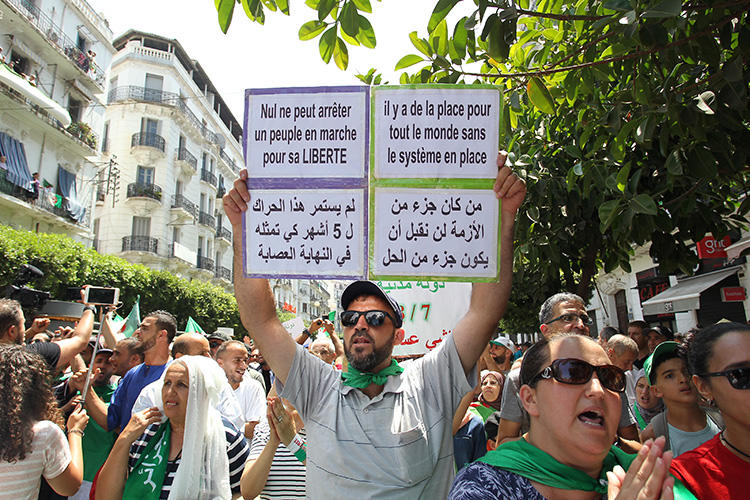New York, August 14, 2019—Access to at least five independent local news websites has been interrupted in Algeria as protesters demand political reform for the fifth consecutive month.
Three outlets said their websites recently became unavailable to local readers: Interlignes Algérie on July 25, Observ’Algérie on August 1, and Algérie Patriotique on August 5, according to statements published online or emailed to CPJ. None of the sites were informed of any official restriction, according to the Algiers-based El Watan daily newspaper and the local news website Algérie Focus, which characterized the development as arbitrary censorship targeting electronic media.
The Tout Sur l’Algérie and Algérie Part news websites also remain blocked since CPJ first reported the apparent censorship in June, according to a message to CPJ from Tout Sur l’Algérie director Lounes Guemache today.
“It is no accident that several Algerian online news outlets are reporting disruptions during a historic protest movement,” said CPJ Middle East and North Africa Program Coordinator Sherif Mansour. “Authorities and telecommunications companies in Algeria must put an end to arbitrary, opaque restrictions on digital news.”
An English-language statement emailed to CPJ by Interlignes’ editorial team on July 31 said their website “is no longer accessible from Algeria, particularly users of ADSL and 4G Internet can’t access the content.” The statement said readers needed to use virtual private networks (VPNs), which mask the user’s location, in order to circumvent the block.
Observ’Algérie stated online on August 1 that its website was inaccessible on mobile and fixed-line internet connections operated by Algérie Télécom, the state-owned telecommunications company. Algérie Patriotique stated in an August 5 Facebook post that its website was “blocked by the authority in Algeria” and was only accessible by VPN or from abroad.
Guemache told CPJ today that he could not access any of the five websites from an Algérie Télécom fixed-line connection, or on mobile connections operated by private companies Ooredoo and Djezzy, except Algérie Part, which was only accessible via Djezzy. CPJ accessed all five websites from the United States and Spain.
On August 6, Karim Younes, coordinator of a national dialogue formed by Algerian interim President Abdelkader Bensalah to end the country’s political crisis, called the restrictions “unbelievable” in an interview with Algerian radio broadcaster Radio M, adding he does not agree with “blocking” media outlets.
YouTube, Google Translate, Hangouts, and other Google services were separately inaccessible nationwide for several hours on August 8 in an outage “consistent with methods used to restrict online content,” according to digital rights group NetBlocks; OONI Explorer, which documents network measurements, also recorded a “sign of network tampering or censorship” affecting YouTube that day. A France24 report said that the disruption followed a video broadcast in which Algeria’s former Minister of Defense Khaled Nezzar urged the country’s military authorities to “answer to the people’s demands.”
Google, which owns YouTube, did not immediately respond to CPJ’s emailed request for comment.
Algeria’s Ministry of Communications did not answer CPJ’s request for comment submitted via its website form in June, or a follow-up request sent in August. Algérie Télécom did not respond to two CPJ emails requesting comment.
